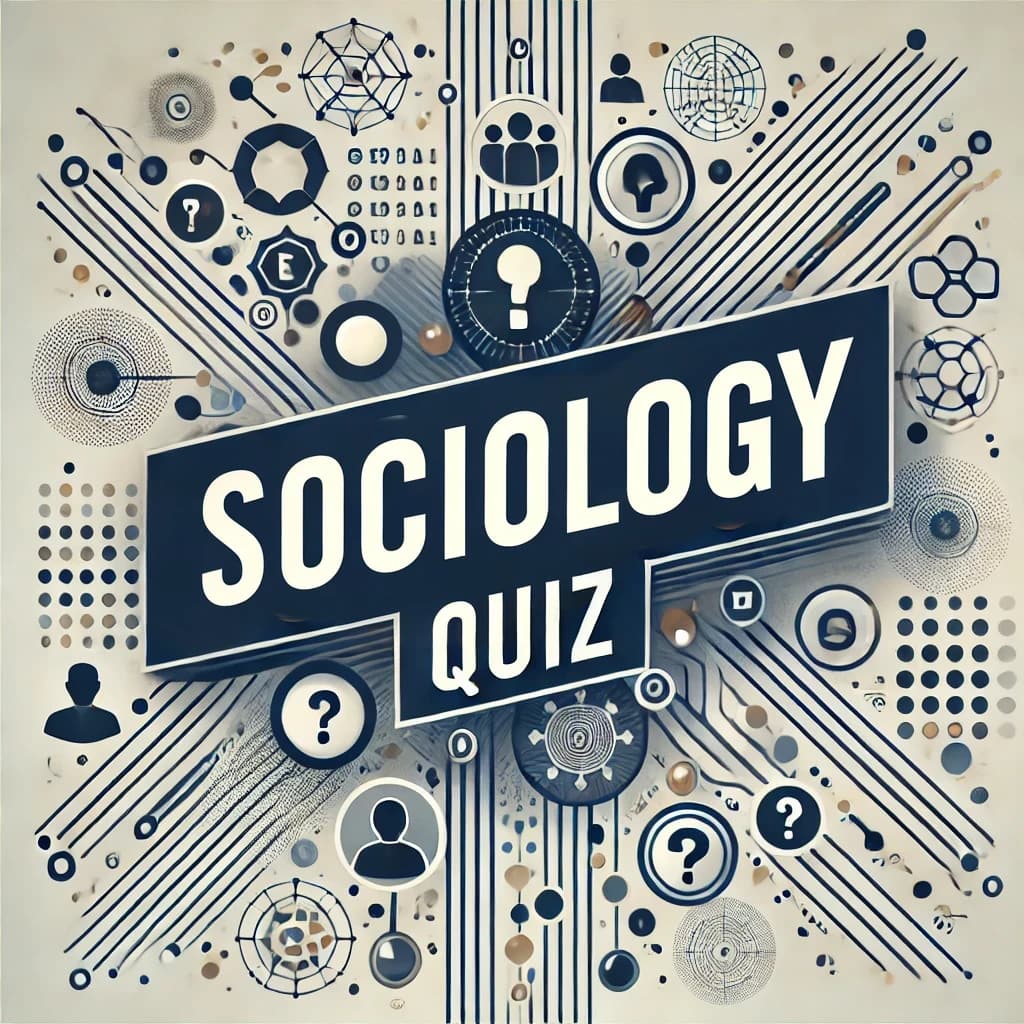This section contains all of the questions that could be a part of this quiz. The quiz will choose 15 random questions from the pool below. If you've found this section feel free to take a look but to start the quiz you should press "Start Quiz". You may also be thinking that some information is missing for some of the below questions and you'd be right! The answers listed below only contain answers that appear in the quiz, so as a hypothetical example, if a question asks about which sociological theory explains why people post photos of their avocado toast on social media and 4 options are given in the question, only the correct answer will appear in the below information. This is because this supplemental information is about the quiz itself and not intended as a comprehensive list. We hope you found the quiz to be entertaining and informative. If you haven't taken it yet, Good Luck!
Q1: Which sociological perspective views society as a complex system of interrelated parts working together to maintain stability?
A1: Functionalism
Q2: Select all of the following that are primary agents of socialisation:
A2: Family, School, Peer Groups
Q3: Match each sociological term with its correct definition.
A3: Social mobility -> Movement between social classes, Socialisation -> Learning norms and values, Social control -> Enforcing social rules
Q4: What term describes the process by which people actively shape their social world through interaction with others?
A4: Social construction
Q5: Which of the following best describes cultural capital according to Bourdieu?
A5: Knowledge, skills and education that provide social advantage
Q6: Which sociological concept refers to the expectations and rules attached to a particular social position or status?
A6: Social role
Q7: Which of the following are examples of social institutions?
A7: Education, Religion, Marriage
Q8: Match each sociological perspective with its key concept.
A8: Marxism -> Class conflict, Feminism -> Patriarchy, Functionalism -> Social order
Q9: What is the term for the process whereby a person internalises the values, beliefs and norms of their culture?
A9: Enculturation
Q10: Which term describes the way society categorises people based on characteristics considered significant by that society?
A10: Social stratification
Q11: According to Weber, what term describes the bureaucratic form of authority based on rules and procedures?
A11: Legal-rational authority
Q12: Which of the following are examples of formal social control?
A12: Laws, Prison sentences, School rules
Q13: Match each social research method with its main characteristic.
A13: Surveys -> Large sample size, Interviews -> In-depth responses, Observation -> Natural behaviour
Q14: What is the term for a self-fulfilling belief or expectation that influences behaviour to the extent that it becomes true?
A14: Self-fulfilling prophecy
Q15: Which sociologist introduced the concept of 'anomie' to describe a state of normlessness in society?
A15: Emile Durkheim
Q16: Which concept describes the way in which people manage their behaviour in social situations to create specific impressions?
A16: Impression management
Q17: Which of the following are examples of ascribed statuses?
A17: Age, Sex, Race
Q18: Match each type of social mobility with its definition.
A18: Vertical mobility -> Moving up or down, Horizontal mobility -> Moving sideways, Intergenerational -> Between generations
Q19: What term describes the process by which minority groups adopt the cultural patterns of the dominant group?
A19: Assimilation
Q20: Which theoretical perspective emphasises the role of conflict between social classes in driving social change?
A20: Marxism

